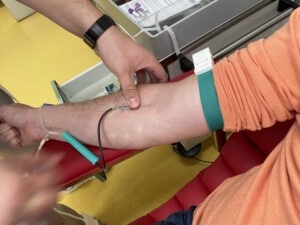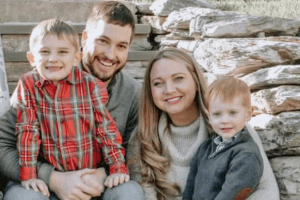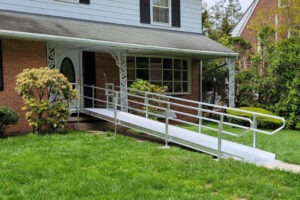
Amid ongoing nursing shortages, RNs and LPNs from other states will find it easier to begin working in Pennsylvania, as the state takes its first steps toward joining the Nurse Licensure Compact.
The interstate agreement allows nurses to more easily take their licenses with them across state lines. The first stage of adopting the compact goes into and allows nurses from 40 other states who hold multi-state licenses to work in Pennsylvania.
The compact is administered by the National Council for State Boards of Nursing (NCSBN) and is an agreement among states and territories to recognize nurses licensed by compact members.
It has the potential to expand Pennsylvania’s pool of nurses and bring out-of-state agency nurses on the job faster, said Angela Costa, interim chief nursing executive at Allegheny Health Network.
“It’s just one more tool in our toolbox to bring nurses in at the bedside, and a great support,” Costa said. “Anything that will help recruit nurses, bring them in sooner and get them to the bedside is where we want to be.”
Easing bureaucratic burden
Esther Atwood, director of clinical operations for executive nursing at AHN, explained that bringing in nurses from out of state often means navigating paperwork delays. AHN currently works with
several hundred travel or agency nurses.
“They basically have to be licensed in Pennsylvania by the state board of nursing to practice. If they don’t have that and they have to apply for a PA license, there is an extended time period for them to be awarded that,” she said.
It can take four to six weeks for the paperwork to be processed, Atwood said, and the time of year can impact the speed of the process. In the summer, for example, after nursing students have all just graduated college, the state is busier.
“It does actually delay us onboarding these nurses,” Atwood said. “We have to wait until they get the temporary practice permit or the actual PA license. With this new nurse compact initiative, we’ll be able to
bring them on a little sooner. It will definitely help with time to fill.”
The policy also will help recruit nurses who may be living within Pennsylvania but practicing elsewhere, said Traci Fick, chief nursing officer at Independence Health System’s Westmoreland and Frick hospitals.
Like other health systems, Independence is working on recruiting more nurses to fill open positions. It plans to hold a job fair Sept. 13.
“If nurses are even living in our state but choose to practice in West Virginia or Ohio, they would now be able to accept a position (in Pennsylvania,) and we wouldn’t have long delays for them to get a Pennsylvania license,” Fick said. “Agency nurses, the travelers who don’t like a consistent assignment, they move around to various states — this will allow them to come into Pennsylvania more readily.”
Because nurses with multi-state licenses are overseen by the National Council for State Boards of Nursing, the same standards are held across all 41 states when it comes to training, education and competency, which is great for the health system, she said.
“Patient safety is all of our utmost importance, both as health care employees and as nurses providing care,” she said. “Assuring safety, competency and training are consistent across these states is very
important.”

Education impact
Diane Kondas, nursing program director at Seton Hill University, said the compact might provide more career openings for nurses who are now in school.
“I think overall it’s going to be an expansion of opportunities,” Kondas said. “The new generation of nurses coming up are definitely intrigued by the idea of travel nursing. This does make travel nursing a little easier.”
When the compact is fully implemented, nurses from Pennsylvania will be able to help out in more acutely impacted parts of the country, she said.
“Our shortage in Pennsylvania, especially in the Pittsburgh area, is not as severe as in other parts of the country. Because we have a high number of universities in a small area, we still have a shortage, but it’s not as acute as if you go out west and into the more rural areas. Philadelphia is the same, too,” she said.
“There’s pockets of Pennsylvania that definitely suffer from the nursing shortages more than others. I think this will give our nurses the opportunity to maybe venture out into those areas that maybe don’t have as many nurses available.”
While future opportunities for Pennsylvania nurses to leave the state might siphon away part of the nursing pool, the ability for nurses from out of state to work here should help fill those gaps, Kondas said.
“I think it will balance out,” she said. “It’s going to help the nurse recruiters in Pennsylvania more easily be able to access nurses from outside the state.”
For Kondas in education, the compact may help boost enrollment and retention at Pennsylvania nursing schools.
“For me as a program director, and for any of the colleges in the area, it helps us with recruitment of nursing students,” she said. “When out-of-state nursing students are looking for Pennsylvania schools, it might increase their confidence that they can attend school in Pennsylvania and then return to their own states. This is a step forward — this is good!”
Nurses look ahead

Denelle Korin, a former bedside nurse from Mt. Nittany Medical Center in State College who is an organizer with SEIU Healthcare Pennsylvania, said the step to join the compact is largely one that will benefit nurses.
“I do truly believe that this can help,” she said. “It certainly will give an ease to nurses who are out of state to come into the state, whereas, before, there were waiting periods and getting your licensure to transfer from state to state. That will help improve the turnaround time for nurses who do want to come into
Pennsylvania to work.”
She described the compact as “a spoke in the wheel” of fixing the nursing staffing crisis and noted that passing other proposed measures, such as the Patient Safety Act, would also be a big help for nurses.
“Right now, one of the huge challenges nurses face and one of the reasons that we leave the bedside is because of the conditions we are put in to work,” she said.
“If Pennsylvania had static or set nurse-to-patient ratios that were safe and appropriate, I believe that the nurse compact would really help bring in a lot of nurses to the bedside, both that are licensed in Pennsylvania like myself and nurses from other states that want to see what it is like to work in an environment with safe ratios.”
The compact is overall a “welcome” move, she said.
“Having hands on deck to help in Pennsylvania is welcome, especially in places where we see extreme short staffing,” Korin said. “Nurses want to be able to care for people appropriately, and what that means is having staff on hand to do that without doing monstrous amounts of overtime.”
However, when the compact is fully implemented and Pennsylvania nurses can work in other states more easily, better conditions elsewhere might shrink Pennsylvania’s pool of available nurses, she said.
“My fear is that there may be other places that decide to hold higher standards for nurses, and nurses will go to those places,” she said. “They will seek out where they feel safe to practice.”
In cases of large-scale disaster, she said, the compact is set to potentially make it easier to get nurses to the scene quickly.
“In the face of a disaster where you are going to need ramped up health care needs, like during covid when there was a huge boom in New York and they really needed nurses in NYC, or in just neighboring large metro areas, it would have been really fantastic to be able to take your license very quickly and move,” she said.
“In humanitarian disaster relief efforts, I think that is something that is extremely responsible and something we should look to do.”
Pennsylvania will become the 41st state to be included. The 2021 Nurse Licensure Compact Act authorized Pennsylvania to join the compact.
The state will not be able to fully implement the compact until preconditions are satisfied, including certifying to other states that Pennsylvania’s State Board of Nursing has performed an FBI criminal background check on
Pennsylvania applicants, a process that requires FBI authorization.
The Department of State has sought this authorization and is awaiting a response, according to a statement. It cannot yet provide a timeline for when full implementation will occur.
Sourced from TribLive, Julia maruca@triblive.com





































